
This year marks the 70th anniversary of the victory of the Chinese People's War of Resistance against Japanese Aggression and the World Anti-fascist War.
Here we list eight Chinese classic war films which encapsulate the bravery and wisdom of the Chinese who fought courageously on the frontline and even sacrificed their lives to earn the peace we have today.
 |
|
[Photo/Mtime] |
1 Landmine warfare (1962)
Set against the backdrop of the hardest years in the anti-Japanese war, the 1962 film tells a story of how the militia and villagers in Zhaojiazhuang defend themselves by laying out landmines to ambush the enemy. Characters in the film are vividly presented as brave, wise and patriotic heroes who will never surrender, even under the most extreme circumstance.
Apart being one of the three most well -received war films at that time (the other two were Tunnel Warfare and Fighting North and South), the film heralds a new narrative technique to combine storytelling and military education.
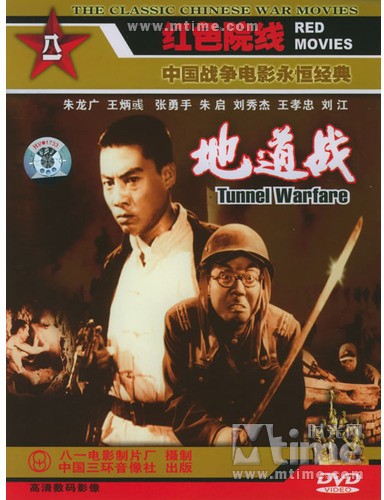 |
|
[Photo/Mtime] |
2 Tunnel Warfare (1965)
Tunnel Warfare is a classic Chinese war movie of the 1960s. It tells a story about how a small village Gaojiazhuang successfully defended itself from the Japanese army through the use of the underground tunnel networks, which were dug and designed by the villagers to serve as both a hiding spot as well as a place to launch attacks.
Because of the rich retails about battlefield confrontation and a vivid depiction of heroic characters, the film soon gained wide popularity after its release in 1965. However, the movie's influence only reached its peak when it became one of the only three movies that were allowed to screen during the year 1966 to 1970, the other two were Mine Warfare (1962) and Fighting North and South (1952).
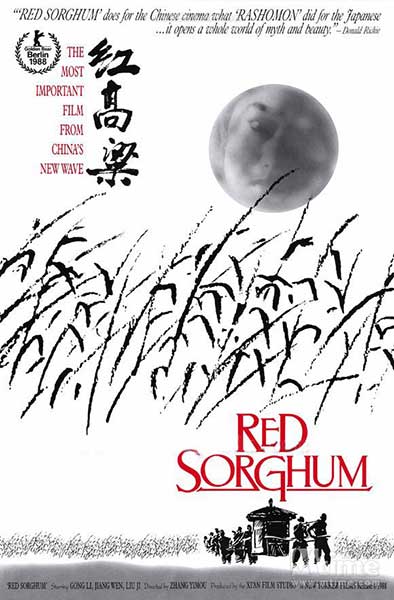 |
|
[Photo/Mtime] |
3 Red Sorghum (1987)
Based on the novel Red Sorghum Clan written by the Nobel laureate Mo Yan, the film is about the story of a young woman who works in a distillery in a rural village of Shandong province. The story is set in the second Sino-Japanese war. The female protagonist, who struggles her whole life to operate the family business of brewing sorghum liquor, gets killed in the battle with the Japanese army, along with the workers in the distillery.
The film, the directional debut of the internationally renowned film director Zhang Yimou, won the Golden Bear Award at the 38th Berlin Film Festival in 1988.
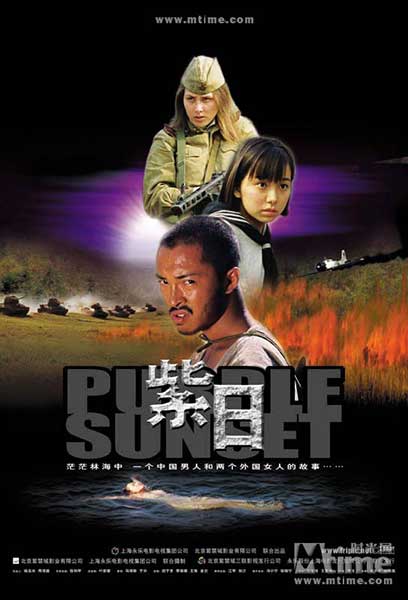 |
|
[Photo/Mtime] |
4 Purple Sunset (2001)
As the last film of the director Feng Xiaogang's "War and Peace trilogy", Purple Sunset is set in the historical period when the World War II was about to end and the Japanese army nearly lost control of mainland China. The film narrates an intricate life and death story of three people who come from different countries (one Chinese civilian, one doctor from the Soviet Union and a Japanese school girl), but because of the war, their fates are closely intertwined. What Feng tries to express is that the Sun is supposed to be the symbol of life, but its color would change when shadowed by warfare.
The film won Best Feature on the 2001 Hawaii International Film Festival.
 |
|
[Photo/Mtime] |
5 On the Mountain of Tai Hang (2005)
On the Mountain of Tai Hang is a 2005 film about how the Eighth Route Army led by general Zhu De marches across the Yellow River to enter the frontline of the ongoing second anti-Japanese war and finally form a military base on Tai Hang Mountain.
The film won Best Picture at the 25th Golden Rooster Award in 2005.
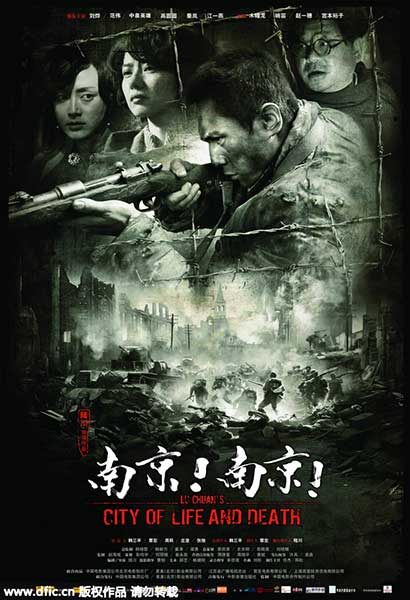 |
|
[Photo/IC] |
6 Nanjing!Nanjing! (2009)
Directed by Lu Chuan, Nanjing!Nanjing! (also known as City of Life and Death) is a 2009 Chinese film featuring the 1937 Nanjing Massacre. Through recounting the experience of an ordinary Japanese soldier and a Chinese soldier, the movie reveals the psychological and mental trauma warfare brings to people.
The film won the Golden Shell prize at the 2009 San Sebastian Film Festival.
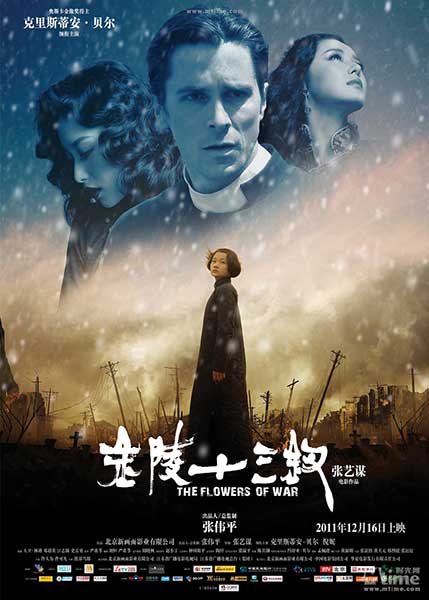 |
|
[Photo/Mtime] |
7 The Flowers of War (2011)
Adapting from a novel named 13 Flowers of Nanjing by Yan Geling, The Flowers of War is a 2011 war movie directed by Zhang Yimou. The story is set in China's Nanjing during the brutal Nanjing Massacre in 1937. It tells a heartbreaking story about how 12 prostitutes try to save the virginity of 13 school girls from the brutal rape of the Japanese army by martyring themselves.
The film features an international cast, starring Hollywood actor Christian Bale. It was chosen as the Chinese entry for Best Foreign Language Film for the 84th Academy Awards, but it didn't make the final cut.
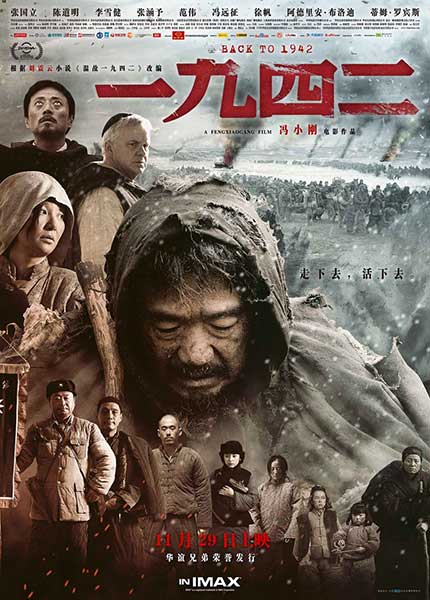 |
|
[Photo/Mtime] |
8 Back to 1942 (2012)
Back to 1942 is a 2012 movie directed by Feng Xiaogang, one of the most accomplished Chinese directors in the contemporary era. It is about a famine in China's Henan province during the second Sino-Japanese war.
The film's narrative revolves around two main plots, one is the fate of Master Fan's family, a wealthy landlord in the disaster-stricken village, that is forced into exile after the famine; The other is the indifference of the government led by Chiang Kai-shek, who does nothing to solve the crisis even after learning that the refugees have resorted to cannibalism.
Grand war spectacle, detailed description of people's reaction to natural and human-made disaster, the film is a huge undertaking that aims to make its audience reflect on the catastrophic consequence that warfare can bring to innocent people.

Presented by Chinadaily.com.cn Registration Number: 10023870-7
Copyright © Ministry of Culture, P.R.China. All rights reserved